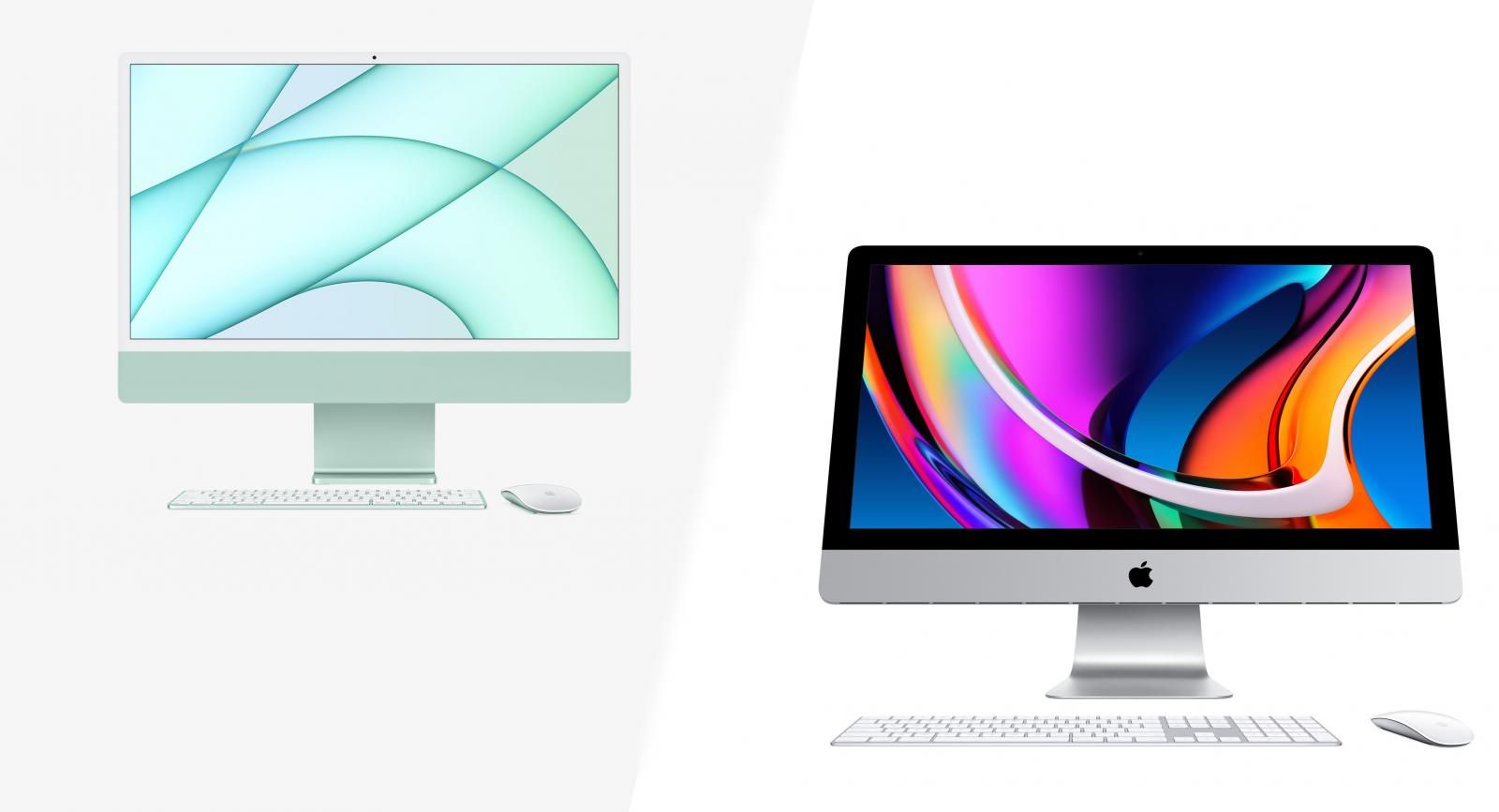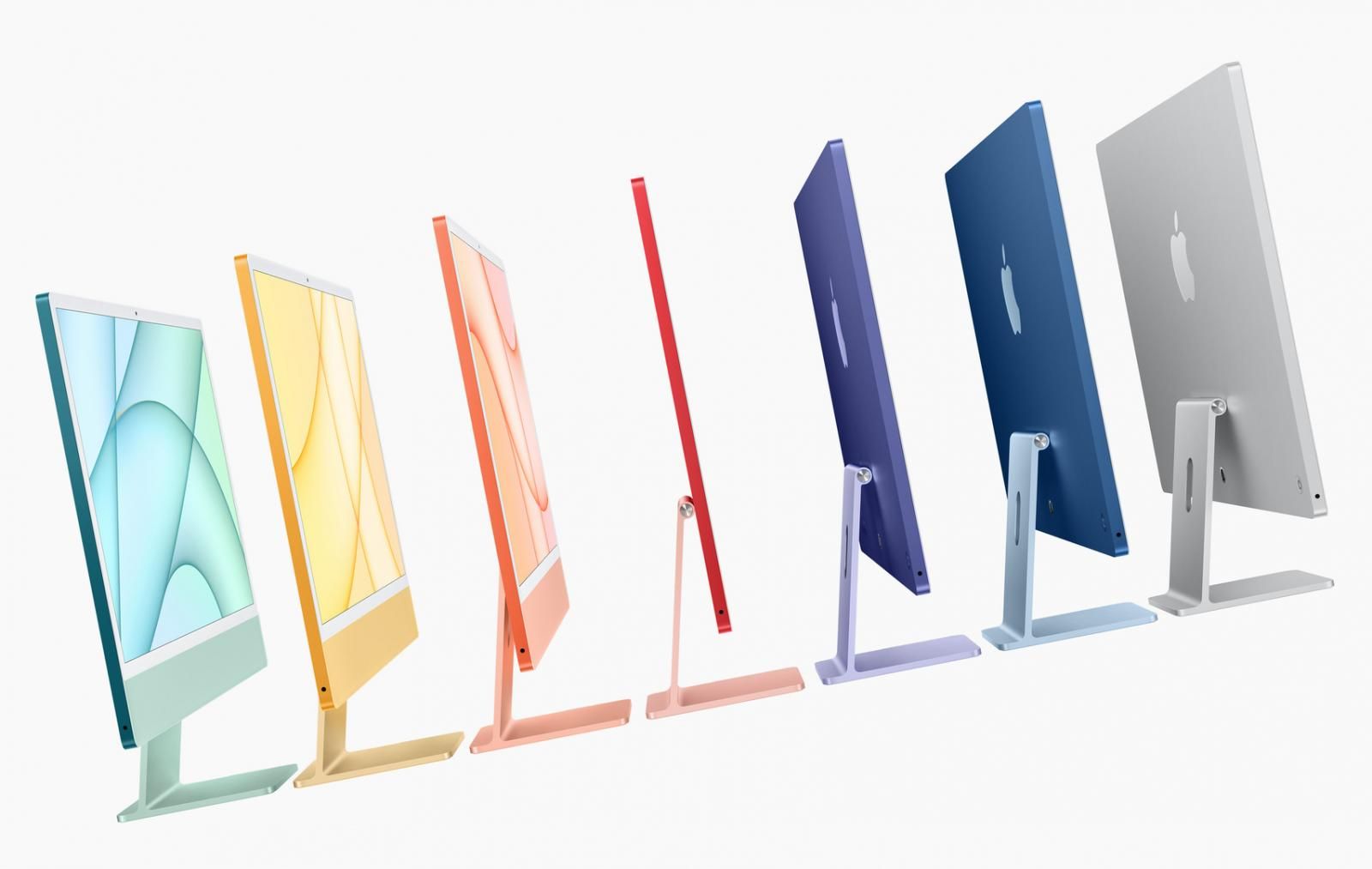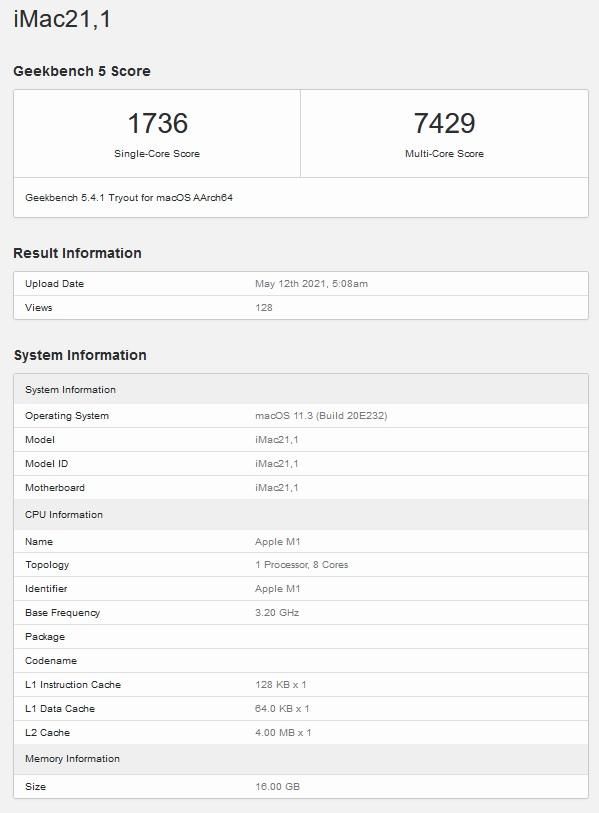It all started back in November 2020, when Apple presented the latest 13-inch MacBook Pro, the MacBook Air, and the Mac mini with its proprietary ARM-based M1 chip. We saw the huge power and performance difference between these Macs and some of their Intel counterparts. And now, it seems that the new M1-powered iMacs will also surpass their predecessors.
We have already started to receive benchmark scores for the latest M1-powered Apple devices, and their results are exactly what we expected. The new M1 iMacs have already started shipping to its customers, with pre-orders starting less than two weeks ago. Now, the first units could arrive as early as next Friday, but we have already started to see just how powerful they can be.
The new iMac features the same M1 chip as the one found in the latest M1 MacBook Pro, MacBook Air, and Mac mini, and recent tests show that the M1 iMac will deliver a single-core score of 1,700 and multi-core scores that go around 7,400. Now, this means that they obliterate its 21.5-inch iMac predecessor, as it achieves a single-core score of around 1,200 and a multi-core score of 6,400 on its Intel Core i7 processor configuration. And if you want the scores for the Intel Core i3 variant, you get 950 and 3,300 for its single-core and multi-core scores, respectively.
In other words, the M1 iMac will be 42 percent faster than the Intel Core i7 21.5-inch iMac, and it is 78 percent faster than the same iMac with an Intel Core i3 processor if we were only to measure single-core scores. Now, if we take the multi-core results, we get that the new M1 iMac will be 126 percent faster than the Intel Core i7 and 124 percent faster than the Intel Core i3 model.
We must also consider that these results allegedly come from the M1 iMac that packs 16GB RAM and it’s running on macOS 11.3. However, we should wait a bit more, as we may soon start to see more benchmark results next Tuesday, May 18, when most testers will finally be able to post the reviews of their units.
Source Geekbench
Via 9to5Mac



